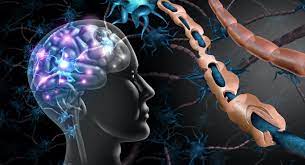No products in the cart.
Understanding Multiple Sclerosis: A Comprehensive Guide
Multiple Sclerosis (MS) is a chronic autoimmune disease that affects the central nervous system, disrupting the flow of information between the brain and the body. With symptoms ranging from mild to severe, MS can significantly impact an individual’s quality of life and daily functioning. In this comprehensive guide, we’ll explore the causes, symptoms, diagnosis, treatment options, and management strategies for MS, shedding light on this complex and often misunderstood condition.
What is Multiple Sclerosis?
Multiple Sclerosis is a condition in which the immune system mistakenly attacks the protective myelin sheath that surrounds nerve fibers in the brain and spinal cord. This process, known as demyelination, disrupts the transmission of nerve signals, leading to a wide range of neurological symptoms. While the exact cause of MS remains unknown, researchers believe that a combination of genetic, environmental, and immunological factors may play a role in its development.
Symptoms of Multiple Sclerosis
The symptoms of MS can vary widely from person to person and may change over time. Some of the most common symptoms include:
- Fatigue: Persistent fatigue is a hallmark symptom of MS, often impacting daily activities and quality of life.
- Muscle Weakness and Spasms: MS can cause weakness, stiffness, and involuntary muscle spasms, affecting mobility and coordination.
- Vision Problems: Optic neuritis, inflammation of the optic nerve, can cause blurred vision, eye pain, and even temporary vision loss.
- Sensory Changes: Numbness, tingling, or pain in the limbs or other parts of the body are common sensory symptoms of MS.
- Cognitive Impairment: Some individuals with MS may experience difficulties with memory, concentration, and other cognitive functions.
- Balance and Coordination Issues: MS can affect balance and coordination, leading to problems with walking and performing everyday tasks.
Diagnosis and Evaluation
Diagnosing MS can be challenging, as there is no single test that can definitively confirm the condition. Instead, healthcare providers rely on a combination of medical history, neurological examinations, imaging tests (such as MRI), and laboratory tests to evaluate symptoms and rule out other possible causes.
Treatment Options
While there is currently no cure for MS, various treatment options are available to help manage symptoms, slow disease progression, and improve quality of life. These may include:
- Medications: Disease-modifying therapies (DMTs) can help reduce the frequency and severity of relapses, as well as slow the progression of disability in individuals with relapsing forms of MS. Other medications may be prescribed to manage specific symptoms such as fatigue, muscle spasms, or pain.
- Physical Therapy: Physical therapy and rehabilitation programs can help individuals with MS improve mobility, strength, and balance, as well as manage spasticity and other motor symptoms.
- Occupational Therapy: Occupational therapists can provide strategies and tools to help individuals with MS adapt to daily activities and maintain independence.
- Lifestyle Modifications: Making healthy lifestyle choices, such as regular exercise, balanced nutrition, stress management, and adequate rest, can help individuals with MS manage symptoms and improve overall well-being.
Coping and Support
Living with MS can be challenging, both physically and emotionally. It’s essential for individuals with MS to build a strong support network, including healthcare providers, family members, friends, and support groups. Seeking emotional support, staying informed about the condition, and maintaining a positive outlook can also help individuals cope with the challenges of MS and live fulfilling lives.
Research and Future Directions
Researchers continue to explore new treatments and interventions for MS, with a focus on improving outcomes, enhancing symptom management, and ultimately finding a cure. Clinical trials and scientific advancements offer hope for the future, as researchers work tirelessly to unravel the mysteries of this complex condition and develop more effective therapies.
In conclusion, Multiple Sclerosis is a complex and multifaceted condition that requires a comprehensive approach to diagnosis, treatment, and management. By understanding the causes, symptoms, and treatment options for MS, individuals can take an active role in their healthcare journey and work towards achieving optimal outcomes and improved quality of life. With ongoing research and advancements in care, there is hope for a brighter future for those living with MS.


 WhatsApp Us 24/7
WhatsApp Us 24/7